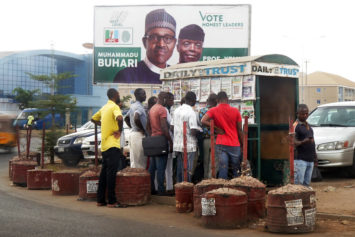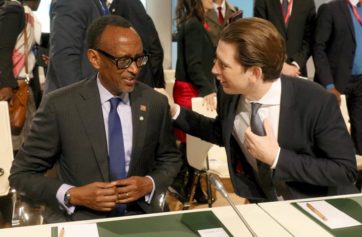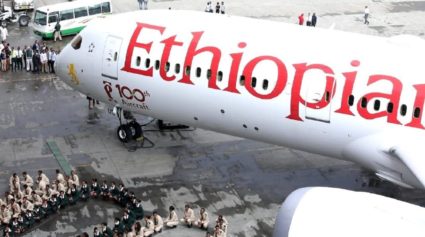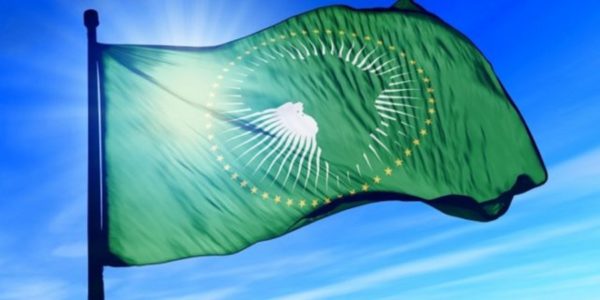
Africa is on the move, with the nations of that continent joining forces to form a multitrillion-dollar trading bloc — the world’s largest free trade zone — and hoping to elevate Africa’s position and bargaining power in the global economic system.
With Zambia as the 22nd nation to ratify in April, the African Union met the minimum threshold for approval of the African Continental Free Trade Area (AfCFTA). Ultimately, the AfCFTA will encompass a market of $2.5 trillion in GDP and 1.2 billion people in Africa, creating the largest free trade zone since the formation of the World Trade Organization 25 years ago. Although the European Union is larger with a GDP of $22 trillion, that trading bloc does not cover nearly as many people, and the AfCFTA promises to boast the largest number of member countries. Of the 55 member states of the African Union, all but Eritrea, Nigeria and Benin have signed the agreement. These member states have pending matters such as consultations with local trade unions and manufacturers regarding their concerns over the agreement, and issues over control over industrial policy and fears that individual nations will become dumping grounds for other nations’ manufactured goods.
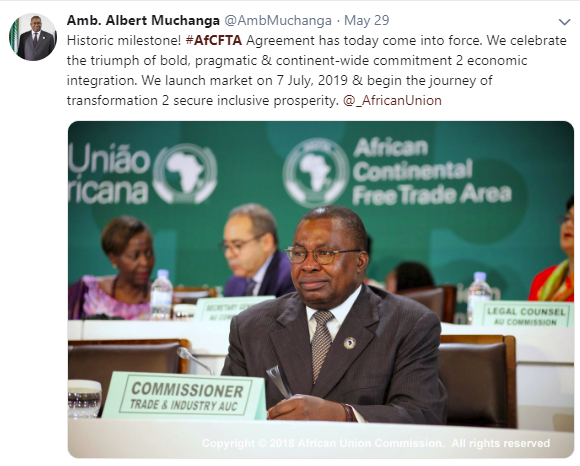
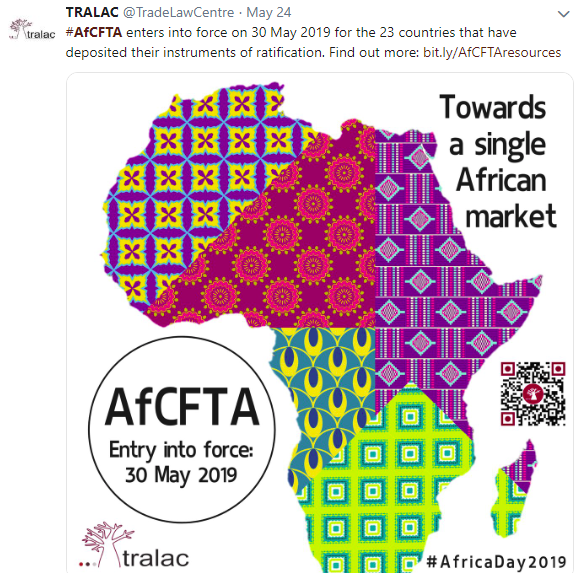
The continental agreement seeks to remove 90 percent of tariffs and create a 52 percent increase in intra-continental trade by 2022 by boosting investment and diversification among the participating nations, growing local business by allowing companies to expand their markets, and serving as an engine for job creation and industrialization in a region where manufacturing only accounts for 10 percent of GDP.
The agreement provides for a single African market for the exchange of goods and services, and a customs union allowing for the free movement of businesspeople and capital. “Economists believe that tariff-free access to a huge and unified market will encourage manufacturers and service providers to leverage economies of scale; an increase in demand will instigate an increase in production, which in turn will lower unit costs. Consumers will pay less for products and services as businesses expand operations and hire additional employees,” according to the United Nations. “When you look at the African economies right now, their basic problem is fragmentation. They’re very small economies in relation to the rest of the world. Investors find it very difficult to come up with large-scale investments in those small markets,” said Albert Muchanga, the African Union trade commissioner. “We’re moving away from fragmentation, to attract long-term and large-scale investment.”
Supporters of the AfCFTA point to the current state of trade in Africa as a reason why the new agreement is crucial. Due to a morass of tariffs and regulations, only 17 percent of African nations’ exports actually go to other African countries. As a result of these barriers, some African nations find it easier to trade with Europe and China rather than with countries in their own region. In contrast, 59 percent of Asian countries send their exports to other nations within Asia, and 69 percent of European exports are intra-continental. Further, a united Africa meeting its own needs could create potential opportunities for trade agreements with countries outside of the continent. Further, when a common visa-free AU passport is ratified by at least 15 states, this will further facilitate the breaking down of borders and free movement of people that will facilitate economic growth.
According to Vera Songwe at the Brookings Institution think tank, the AfCFTA will not be an ordinary free-trade zone if successful. “What is less known about the AfCFTA is that its scope exceeds that of a traditional free trade area, which generally focus on trade in goods, to include trade in services, investment, intellectual property rights and competition policy, and possibly e-commerce,” Songwe said. “The AfCFTA is complemented by other continental initiatives, including the Protocol on Free Movement of Persons, Right to Residence and Right to Establishment, and the Single African Air Transport Market (SAATM).”
Dr. Arikana Chihombori-Quao, the African Union Ambassador to the United States, spoke with Atlanta Black Star about the significance of the AfCFTA. “If this was in America it would be on the news all over. I did not get that feeling when I was in Africa. You are talking about the decision by the 55 African heads of state that we were trying to accomplish since 1963,”
she said. “This is huge, I want people to know that. You are talking about undoing the damage that the Berlin Conference in 1884, when the colonizers met in Berlin to break up the continent … to make sure that Africa was forever dominated,” Ambassador Chihombori-Quao added, noting that even with sovereignty, the African nations could not compete on the world stage divided.
“The reality is the disparity needed to be equalized. And how do you level the playing field?” the ambassador asked. “Since 1963 people have said Africa for the Africans. It means all people of African descent because we are all Africans.” Of the AfCFTA, Ambassador Chihombori-Quao said it will form the largest economy in the world. “This is the fastest ratification in the history of ratifications. The Western powers did not think this was going to happen,” she noted. “When there is a will there is a way. The African leaders spoke loud and clear. … It illustrates how ready Africa is to take its role on the world stage. The sleeping giant is waking.”
The new trade agreement provides opportunities for the African diaspora, according to the AU Ambassador. “More importantly, I want the children of Africa, children of African descent to know that Africa is counting on them to step up. Africa needs capacity,” she said, adding that if the children of Africa do not come to take the contracts, other countries will. “Our former colonizers, they intentionally underdeveloped Africa, they built the Africa they wanted to forever look to them. Africa has everything the world needs.”
Ambassador Chihombori-Quao noted that “this resource-rich continent is painted as diseased, dying,” and “it was all by design to see black people the continent is forever dominated. An Africa speaking with one voice cannot be exploited.”
The AfCFTA will bring about African unity that was undermined through colonization and slavery. “The colonizers were downright evil people because what they did to the continent was unacceptable. They put together a strategy to destroy a whole race,” the ambassador said. “In addition to the physical boundaries, they also set out to make Africans believe everything African was bad and everything European was more desirable. The same mind game was going on with slavery. The shackles of the mind are the same. While we gave up the shackles, the shackles of the mind still exist.”
With the promise of free movement of people, electricity to millions more at a savings of billions of dollars, the AfCFTA is a game changer, with plans such as the high-speed rail from Cairo to Cape Town bringing the promise of transformation to the continent.
As with any such agreement, there are challenges, the foremost being in the implementation of the AfCFTA, including negotiations on details regarding e-commerce, intellectual property, competition tariff concessions, and other issues. As Landry Signé and Colette van der Ven note in a Brookings paper, the ability of the AfCFTA to reduce intra-African trade barriers depends on ongoing negotiations. Another issue is the old colonial infrastructure of African nations, which impedes trade and is in great need of an upgrade. While the continent requires $130 billion to $170 billion in annual infrastructure financing according to the African Development Bank, they suffer from a $68 billion to $108 billion shortfall.
Meanwhile, the AfCFTA has implications for Africa’s relations with Europe, the U.S., and China. The ambassador said that when Africa negotiates with China it will do so with equality. “The European Union is warning Africa about China. They don’t have a leg to stand on,” the Ambassador said. “France is taking $500 billion out of Africa year in and year out, Europeans are taking trillions out of Africa year in and year out. The spotlight is on China but no one is talking about Europe,” she said. “Until France stops taking billions out of Africa every year they do not have a leg to stand on. They’ve been doing it so long it has become normal. They are refusing to return the skulls they used for medical experiments,” she added, arguing that “France is nothing without Africa. France is a developing country without Africa.”
“One of the biggest threats to peace and security in Africa is France. France is in 18 African countries (and) 22 African presidents were assassinated by France,” said the head of the AU mission in Washington. “We can put China on notice that we need them to treat us fairly. The reason China was able to get away with it is we didn’t connect the dots. They dealt with us individually and now we are connecting the dots,” the AU diplomat said, offering that the biggest challenge to African economic unity are the former colonizers. “They did not expect us to have these ratifications, so this was a curveball for them,” she noted. “They infiltrate African governments, they will buy some people. We have been through them for years.”
“The next challenge is how do we get people to unshackle themselves…The failure to believe in ourselves the failure to trust each other,” the ambassador said. “People from China stick together like super glue. … Our problem is we do not believe we are Africans. We as Black people must have a serious conversation and look in the mirror.”
The nations of the African continent are making moves towards unity and shared prosperity. Through the African Continental Free Trade Area, the African Union countries will use trade and investment to leverage their power on the global stage and bring about sustainable development for African people throughout the world.
